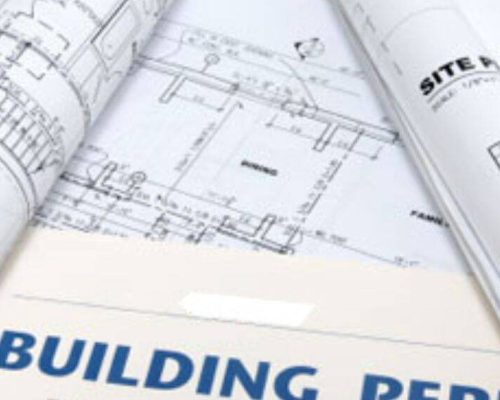Overview of Delaware Building Codes: A Guide for Contractors
Delaware is a state that takes building safety and regulations seriously. As a contractor, it is important to understand and comply with the building codes set forth by the state. Failure to do so can result in fines, delays, and even legal consequences. In this article, we will provide an overview of Delaware building codes and what contractors need to know to ensure compliance and successful completion of their projects.
The Delaware State Fire Prevention Commission is responsible for establishing and enforcing building codes in the state. These codes are designed to ensure the safety and well-being of the public by regulating the construction, alteration, and maintenance of buildings. The codes cover a wide range of areas, including fire safety, structural integrity, plumbing, electrical systems, and accessibility.
One of the most important things for contractors to understand is that building codes are constantly evolving. The Delaware State Fire Prevention Commission regularly updates and revises the codes to keep up with advancements in technology and construction practices. As a contractor, it is your responsibility to stay informed and up-to-date with any changes to the codes.
Before starting any construction project in Delaware, it is crucial to obtain the necessary permits. The Delaware State Fire Prevention Commission requires permits for all new construction, renovations, and additions. These permits ensure that the project complies with the building codes and that all necessary inspections are conducted throughout the construction process.
When it comes to fire safety, Delaware has strict regulations in place. The state follows the International Fire Code (IFC), which sets standards for fire prevention, fire protection, and life safety. This includes requirements for fire alarms, sprinkler systems, and fire exits. Contractors must ensure that all buildings meet these standards to obtain a certificate of occupancy.
Structural integrity is another important aspect of building codes in Delaware. The state follows the International Building Code (IBC), which sets standards for the design and construction of buildings. This includes requirements for building materials, foundations, and structural elements. Contractors must ensure that all structures are built to withstand the elements and meet the IBC standards.
Plumbing and electrical systems are also regulated by building codes in Delaware. The state follows the International Plumbing Code (IPC) and the National Electrical Code (NEC). These codes set standards for the installation and maintenance of plumbing and electrical systems to ensure the safety and functionality of buildings. Contractors must adhere to these codes to avoid any potential hazards and ensure the proper functioning of these systems.
Accessibility is another important aspect of building codes in Delaware. The state follows the Americans with Disabilities Act (ADA), which sets standards for accessibility in public buildings. This includes requirements for ramps, handrails, doorways, and other features to ensure that buildings are accessible to individuals with disabilities. Contractors must ensure that all buildings comply with the ADA standards to avoid any potential legal consequences.
In addition to understanding and complying with building codes, contractors must also be aware of the inspection process. The Delaware State Fire Prevention Commission conducts inspections throughout the construction process to ensure that all codes are being followed. These inspections are crucial for obtaining a certificate of occupancy and completing the project successfully.
In conclusion, understanding Delaware building codes is essential for contractors to ensure the safety and compliance of their projects. It is important to stay informed and up-to-date with any changes to the codes and obtain the necessary permits before starting any construction project. By adhering to the building codes, contractors can ensure the safety and well-being of the public and avoid any potential legal consequences.
Key Changes in Delaware Building Codes and How They Affect Contractors

Delaware has recently made some key changes to its building codes, and it is important for contractors to understand these changes in order to ensure compliance and avoid any potential penalties. Building codes are regulations set by the state to ensure the safety and structural integrity of buildings. These codes are constantly evolving to keep up with advancements in technology and construction practices. As a contractor, it is your responsibility to stay updated on these changes and implement them in your projects.
One of the major changes in Delaware building codes is the adoption of the 2018 International Building Code (IBC). This code is a comprehensive set of regulations that covers all aspects of building construction, including structural design, fire safety, plumbing, and mechanical systems. The previous version of the IBC used in Delaware was from 2012, so this update brings significant changes that contractors need to be aware of.
One of the key changes in the 2018 IBC is the increased focus on energy efficiency. Delaware has always been a leader in promoting sustainable building practices, and the new code reflects this commitment. The 2018 IBC includes stricter requirements for insulation, air sealing, and energy-efficient lighting and appliances. This means that contractors will need to pay more attention to these aspects of construction in order to meet the code’s standards.
Another important change in the 2018 IBC is the inclusion of new seismic design requirements. Delaware is not known for its seismic activity, but the state has experienced earthquakes in the past, and the new code aims to ensure that buildings can withstand such events. Contractors will need to consider these requirements when designing and constructing buildings in areas that are prone to earthquakes.
In addition to the changes in the IBC, Delaware has also adopted the 2018 International Residential Code (IRC). This code specifically applies to one- and two-family dwellings, and it covers everything from building materials to plumbing and electrical systems. The 2018 IRC includes new requirements for fire sprinkler systems in single-family homes, which may add to the cost of construction. Contractors need to be aware of these changes and factor them into their project budgets.
One of the most significant changes in the 2018 IRC is the inclusion of new requirements for deck construction. Decks are a popular feature in residential construction, but they can also be a safety hazard if not built properly. The new code includes stricter guidelines for deck design and construction, including the use of specific materials and fasteners. Contractors need to pay close attention to these requirements to ensure the safety of their clients and avoid any potential liability issues.
Apart from the changes in the IBC and IRC, Delaware has also adopted the 2018 International Energy Conservation Code (IECC). This code sets standards for energy efficiency in commercial and residential buildings. The 2018 IECC includes new requirements for building envelope insulation, air sealing, and lighting controls. Contractors need to be aware of these changes and implement them in their projects to meet the code’s standards.
In conclusion, Delaware has made significant changes to its building codes with the adoption of the 2018 IBC, IRC, and IECC. These changes reflect the state’s commitment to promoting sustainable and safe building practices. As a contractor, it is crucial to stay updated on these changes and ensure compliance in your projects. Failure to do so can result in penalties and potential safety hazards for building occupants. By understanding and implementing these key changes in Delaware building codes, contractors can ensure the safety and longevity of their projects.
Navigating Delaware Building Codes: Tips and Resources for Contractors
As a contractor in Delaware, it is crucial to have a thorough understanding of the state’s building codes. These codes are in place to ensure the safety and structural integrity of buildings, as well as to protect the health and well-being of the people who will be using them. Navigating these codes can be a daunting task, but with the right knowledge and resources, contractors can ensure that their projects are up to code and avoid any potential legal issues.
The first step in understanding Delaware building codes is to familiarize yourself with the state’s specific regulations. Delaware has adopted the International Building Code (IBC) as its primary code for commercial buildings and the International Residential Code (IRC) for residential buildings. These codes are updated every three years, so it is important to stay up to date with any changes that may affect your projects.
One of the key aspects of Delaware building codes is the requirement for building permits. In most cases, a permit is required for any new construction, renovations, or alterations to existing structures. This includes everything from adding a new room to a house to installing a new HVAC system. It is the responsibility of the contractor to obtain the necessary permits before beginning any work. Failure to do so can result in fines and delays in the project.
In addition to building permits, contractors must also adhere to zoning regulations. These regulations dictate how a property can be used and what types of structures can be built on it. Zoning laws can vary from city to city, so it is important to check with the local government before starting a project. Violating zoning regulations can result in costly fines and even the demolition of the structure.
Another important aspect of Delaware building codes is the requirement for inspections. Inspections are conducted at various stages of the construction process to ensure that the work is being done according to code. These inspections are typically carried out by a building inspector from the local government. It is the responsibility of the contractor to schedule and pass these inspections. Failing an inspection can result in delays and additional costs to fix any issues.
To help contractors navigate the complex world of building codes, the state of Delaware offers various resources and tools. The Delaware Division of Professional Regulation oversees the licensing and regulation of contractors in the state. They provide a comprehensive guide to the state’s building codes, as well as information on how to obtain permits and schedule inspections.
Additionally, the Delaware Contractors Association (DCA) is a valuable resource for contractors. The DCA offers training and education programs to help contractors stay up to date with the latest building codes and regulations. They also provide networking opportunities and advocacy for the construction industry in Delaware.
It is also important for contractors to stay informed about any changes or updates to the building codes. The state of Delaware offers a free subscription service that sends out notifications when there are any updates to the codes. This ensures that contractors are aware of any changes that may affect their projects.
In conclusion, understanding Delaware building codes is essential for contractors to successfully complete their projects. From obtaining permits to scheduling inspections, contractors must adhere to these codes to ensure the safety and compliance of their work. By utilizing the resources and tools available, contractors can navigate the complex world of building codes and ensure the success of their projects.










